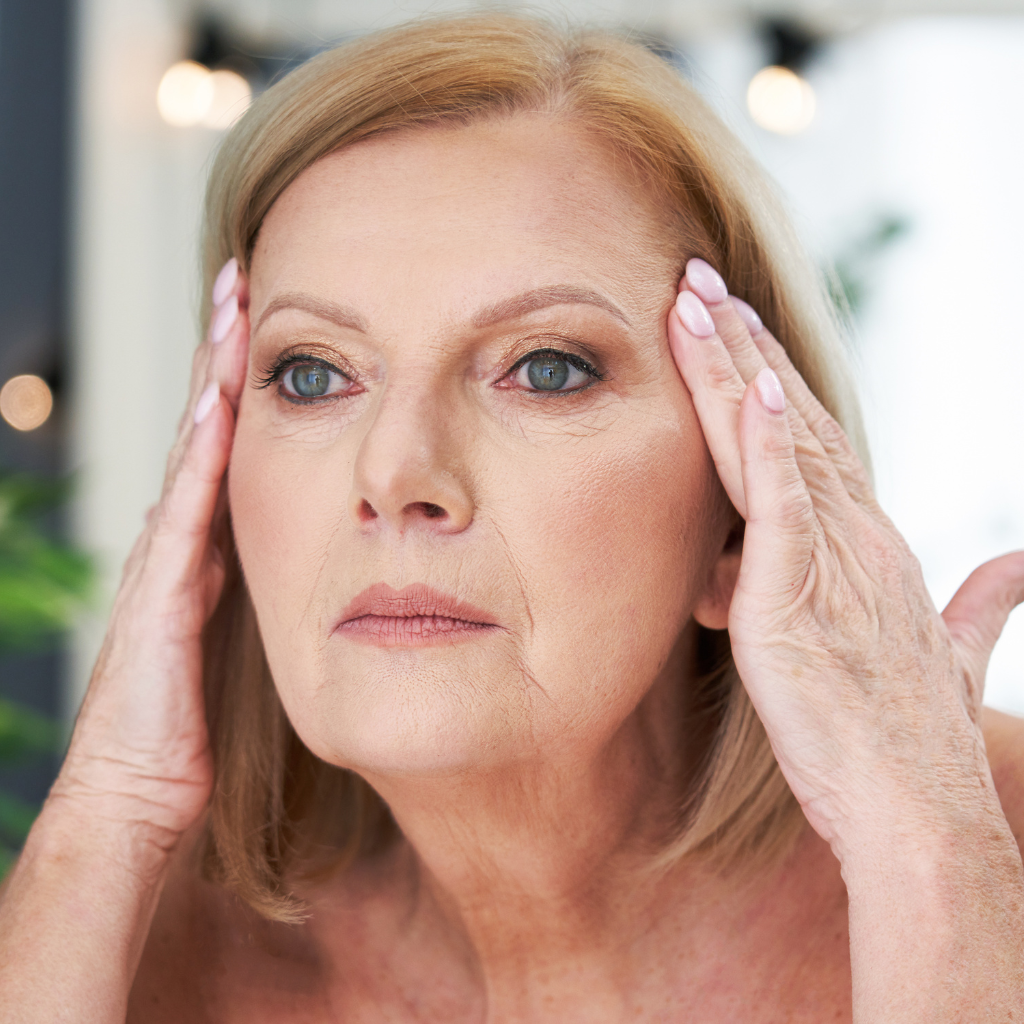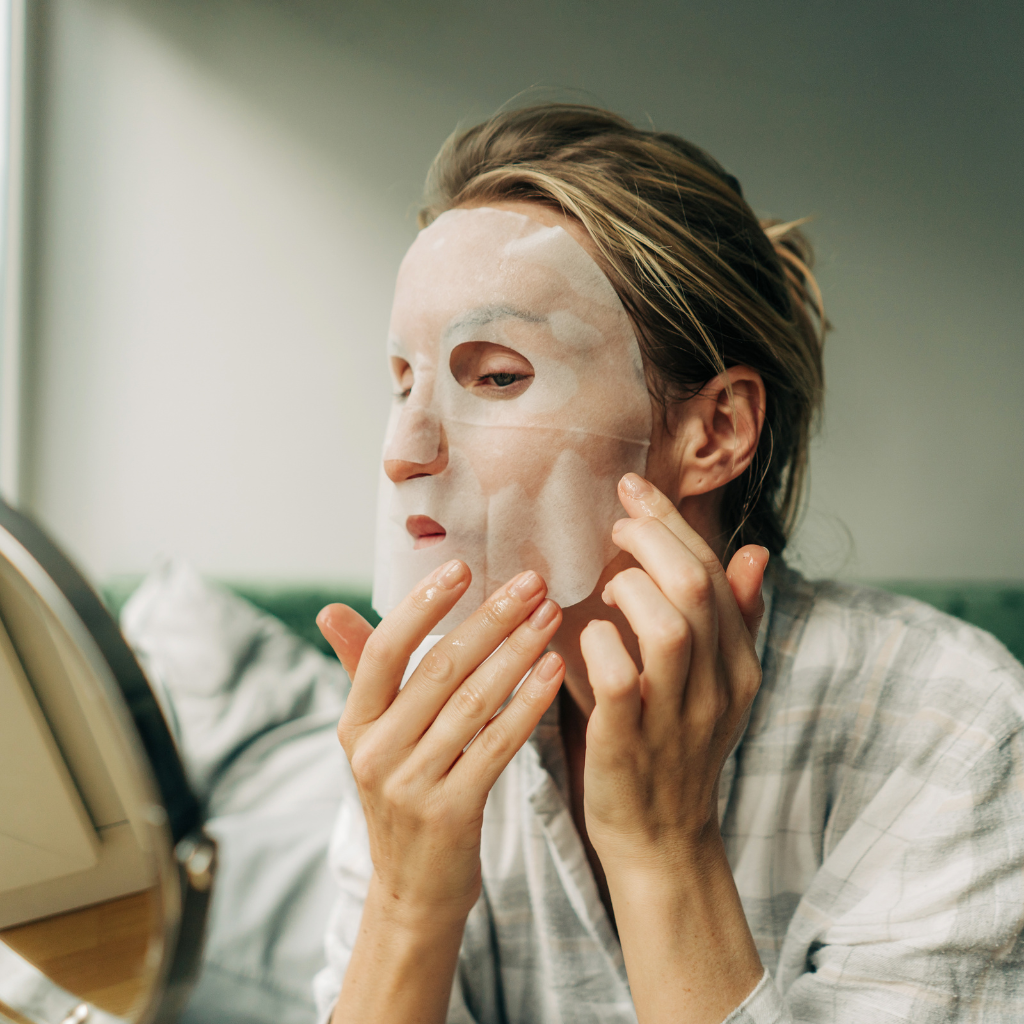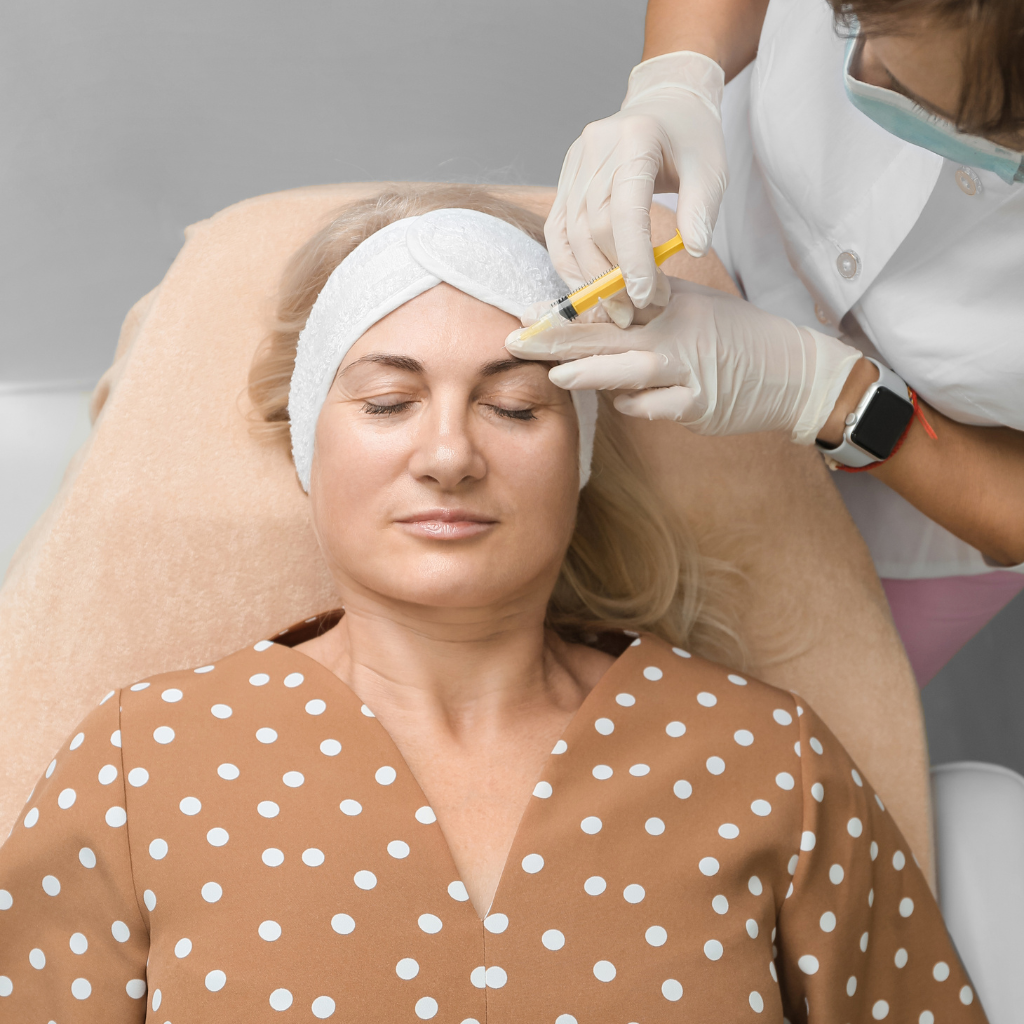Anti-Aging Treatment: Effective Remedies and Age-Defying Strategies
- Home
- Anti-aging
- what is anti aging

Effective anti-ageing treatments encompass various strategies, including skin care products enriched with retinoids, peptides, and antioxidants, which promote collagen synthesis and combat free radicals. Additionally, dietary adjustments that increase the intake of antioxidants, omega-3 fatty acids, and other key nutrients support skin health and overall well-being. Professional procedures like chemical peels and filler injections contribute significantly to skin rejuvenation. Further exploration reveals a variety of choices to preserve youthfulness and improve skin quality.
What is Anti-Aging?
Anti-ageing refers to the processes and treatments designed to delay or mitigate the effects of ageing, particularly within the skin.
As the body ages, structural proteins such as collagen and elastin, which guarantee skin elasticity and firmness, diminish, leading to signs of ageing.
Substances like hyaluronic acid are pivotal in maintaining skin hydration and integrity, offering significant anti-aging benefits by retaining moisture and enhancing tissue repair.
How Does the Aging Process Affect Skin?
The natural ageing process significantly impacts skin health and appearance. As individuals age, collagen production diminishes, decreasing elasticity since elastin in the skin also degrades. This reduction in collagen and elastin contributes to changes in skin texture, making it appear less firm and more prone to sagging.
Concurrently, skin hydration levels decrease, exacerbating the formation of lines and wrinkles. Additionally, the ageing process may stimulate the development of age spots, further altering the skin’s aesthetic.
Understanding these transformations is essential to developing strategies to reduce premature skin aging, ensuring interventions are targeted towards preserving skin’s structural integrity and moisture retention, thereby maintaining a more youthful appearance.
What Are the Anti-Aging Properties of Hyaluronic Acid?
This naturally occurring molecule is essential in maintaining skin’s hydration and elasticity, both vital for youthful-looking skin.
Here are its primary anti-aging properties:
- Moisturizing Properties: Hyaluronic acid can retain up to 1000 times its weight in water, considerably enhancing skin hydration and reducing dryness, often evident in aging skin.
- Collagen Synthesis: It indirectly supports collagen synthesis, maintaining skin’s firmness and structure, thereby helping to reduce wrinkles and fine lines.
- Improves Skin Elasticity: Maintaining adequate moisture levels helps keep the skin plump and elastic, delaying sagging and aging signs.
- Incorporation in Skin Care Products: Widely found in aging skin care products, hyaluronic acid enhances the efficacy of formulations aimed at minimizing aging signs.
These properties make hyaluronic acid a cornerstone in anti-aging skin care.
How Do Collagen and Elastin Work to Prevent Premature Skin Aging?
Collagen and elastin are essential proteins in the human body that play pivotal roles in maintaining the skin’s structural integrity and elasticity, acting as natural deterrents against premature aging.
Found abundantly within the dermis, collagen fibres provide rigidity and resilience, vital for younger-looking skin. At the same time, elastin facilitates the skin’s ability to return to its original shape after stretching or contracting.
Ideal levels of these proteins guarantee a more youthful appearance by preventing the formation of wrinkles and sagging, hallmarks of aging skin.
Anti-aging skin care routines often emphasize skin care ingredients that support collagen and elastin synthesis, reflecting ongoing aging research.
Such ingredients are integral to maintaining skin health, reinforcing the importance of scientifically formulated anti-aging skin care in any effective skincare routine.
How to Choose the Best Anti-Aging Skin Care Products?
Selecting the most effective anti-aging skin care products requires understanding key ingredients and their functions.
Ingredients such as retinoids and peptides are pivotal for minimizing fine lines by promoting collagen synthesis and skin renewal.
Additionally, active ingredients and antioxidants like Vitamin C are essential, as they combat free radicals, aid skin repair and protect against environmental damage.

Which Anti-Aging Cream Ingredients Are Best for Fine Lines?
Identifying key ingredients that target fine lines is essential when seeking effective anti-ageing skin care products. The following list outlines the most efficacious components:
- Retinol Serum: A derivative of Vitamin A, retinol is renowned for accelerating cell turnover and stimulating collagen production, thereby diminishing the appearance of fine lines.
- Ascorbic Acid (Vitamin C): This potent antioxidant helps protect the skin from oxidative stress while promoting collagen synthesis, which is vital for smoothing fine lines.
- Ferulic Acid: Often used in conjunction with vitamins C and E, ferulic acid enhances their photo-protection, offering increased resistance against signs of ageing caused by UV radiation.
- Hyaluronic Acid: This moisture-binding ingredient helps to plump the skin, significantly reducing the visibility of fine lines and wrinkles.
What Should You Look for in Skin Care Products Containing Active Ingredients?
Essential criteria include active ingredients known for their anti-ageing properties and compatibility with your skin type to avoid skin irritation.
Products should offer adequate protection against the signs of ageing while promoting overall skin health. Evaluate the formulation details to guarantee it addresses specific skin conditions, such as dryness or loss of elasticity.
Look for evidence-based components, such as specific peptides or antioxidants, which are scientifically proven to combat ageing. Finally, consider the concentration of these active ingredients; a higher concentration might not always be suitable, especially for sensitive skin types.
Always patch-test new products to assess their effect on your skin before regular use.
Why Is Vitamin C Important in Anti-Aging Skin Care?
Recognized for its robust anti-aging properties, Vitamin C is essential in maintaining a youthful appearance.
- Promotes Collagen Synthesis: Important in skin structure, Vitamin C enhances collagen production, reducing the appearance of fine lines and promoting skin elasticity.
- Mitigates Photodamage: It helps to repair photodamaged skin, which is vital in a skincare method to protect the skin from UV rays. Always wear sunscreen to augment this benefit.
- Evens Skin Tone: Vitamin C is known to reduce pigmentation, thereby evening out skin tone and enhancing skin radiance.
- Antioxidant Protection: This vitamin neutralizes free radicals, protecting the skin from premature ageing caused by environmental aggressors.
Including Vitamin C in anti-ageing creams is consequently highly beneficial.
Are Anti-Aging Treatments Effective?
Evaluating the efficacy of anti-ageing treatments necessitates an extensive understanding of the options available.
Popular methods such as chemical peels aim to rejuvenate the skin by removing dead cells and promoting new cell growth, while filler injections work by restoring volume to the dermal layers to reduce the appearance of wrinkles.
The involvement of a dermatologist is vital, as they provide expert guidance on the suitability and expected outcomes of these treatments based on individual skin types and conditions.

What Are Popular Anti-Aging Treatment Options, Including Chemical Peels?
Among the myriad anti-aging treatment options available today, chemical peels stand out due to their efficacy in reducing signs of ageing, such as fine lines, wrinkles, and uneven skin tone.
- Chemical Peels: These treatments involve applying a solution that causes the top layer of skin to peel off, revealing smoother, more youthful skin underneath. They are particularly effective for addressing dark spots, sun damage, and other aging signs.
- Anti-Aging Strategies: Including routine sun protection and the use of antioxidants which prevent premature skin aging.
- Addressing Skin Problems: Tailored peels can target specific issues like acne scars and hyperpigmentation.
- Treatment Options Variety: From light superficial peels to deeper ones, depending on the severity of photoaged skin.
How Can Filler Injections Help Plump the Skin?
While chemical peels are an effective solution for surface skin concerns, filler injections offer a different approach by directly addressing volume loss, another significant factor in the ageing process.
These injections, typically composed of substances like hyaluronic acid, are designed to restore the skin’s youthful fullness, effectively helping to plump skin and diminish the appearance of wrinkles.
The strategic placement of fillers can also help tighten skin by promoting the production of human dermal fibroblasts, which are essential for skin elasticity.
As part of extensive anti-aging strategies, it is essential to use them safely and understand how anti-aging products work within the broader process of aging.
When used judiciously, filler injections complement anti-wrinkle creams, providing a more pronounced and immediate ageing facial rejuvenation.
What Is the Role of Dermatologist in Anti-Aging?
As the primary experts in skin care, dermatologists play an essential role in implementing and supervising anti-aging treatments. Their involvement spans a wide range of activities:
- Advice and Treatment: They provide personalized advice on managing intrinsic ageing and prescribe treatments to mitigate extrinsic factors like sun exposure.
- Anti-Aging Research: Dermatologists contribute to research that tests the efficacy of new skin products and therapies designed to reduce wrinkles and improve skin health.
- Sun Protection Guidance: As healthcare providers, they emphasize the importance of sun protection, advising patients to apply sunscreen with broad spectrum coverage.
- Product Recommendation: They recommend clinically approved skin products that help maintain skin health and retard the ageing process effectively.
How Can Skin Care Routines Help with Anti-Aging?
In addressing the efficacy of skin care routines in anti-aging, it is essential to take into account established best practices that optimize skin health over time.
The application of moisturizers and sunscreens plays a vital role, acting to hydrate the skin and shield it from the deleterious effects of UV radiation.
Understanding the importance of UV protection underscores the necessity for daily sunscreen use as a preventative measure against premature aging and skin damage.
What Are the Best Practices for a Skin Care Routine?
A strategic routine fosters overall skin health and mitigates aging effects.
Here are the best practices recommended:
- Daily Sunscreen Application: Protects against harmful UV rays that accelerate aging. Sunscreen should be easily absorbed by the skin to maximize protection.
- Consistent Moisturizing: Helps to protect the skin’s barrier, reducing water loss and improving elasticity.
- Gentle Cleansing: Removes impurities without stripping natural oils, maintaining skin’s anti-inflammatory response.
- Targeted Treatments: Use of serums that penetrate the skin effectively, addressing specific concerns like wrinkles or uneven skin tone, integral to understanding what is anti-aging.
This regimen is foundational to preserving the skin’s youthful appearance and enhancing overall health.
How Does Using a Moisturizer and Sunscreen Benefit Skin?
Building on the foundational practices of a meticulous anti-aging skincare routine, applying moisturizer and sunscreen plays a significant role in maintaining skin health.
Moisturizers aid in wound healing and enhance skin and hair hydration by reinforcing the skin barrier, reducing the risk factor for dermatological issues. When selecting products, those containing jasmine rice extract are recommended due to their anti-inflammatory properties and extended shelf life.
Concurrently, avoiding formulations with high alcohol content is advisable to prevent skin dryness.
Sunscreen is a critical barrier against damage from repetitive facial expressions and other indoor tanning equipment, protecting blood vessels from undue stress and preserving skin elasticity.
Together, these products form a synergistic defence against premature ageing.
Why Is It Important to Protect the Skin from UV Rays?
Understanding the importance of UV ray protection is essential in any anti-aging skin care regimen.
Ultraviolet (UV) rays from the sun can cause significant damage to the skin, accelerating the ageing process and increasing the risk of skin cancer.
Here are four critical reasons to shield your skin from UV exposure:
- Prevention of Premature Aging: UV rays break down collagen and elastin, leading to wrinkles and sagging skin.
- Reduction in Hyperpigmentation: Continuous exposure can lead to dark spots and uneven skin tone.
- Lower Risk of Skin Cancer: Effective protection reduces the chances of developing melanoma and non-melanoma skin cancers.
- Maintenance of Skin Health: Products may contain ingredients that strengthen the skin’s barrier against environmental damage.
What Role Does Nutrition Play in Anti-Aging?
Nutrition plays a pivotal role in the anti-aging process, influencing both cellular health and the body’s overall resilience.
Research has identified specific foods that possess anti-aging properties, potentially mitigating the physical signs of aging.
Essential nutrients, integral to maintaining skin elasticity and bodily functions, are critical for promoting healthy ageing.
Which Foods Are Known for Anti-Aging Properties?
Nutrition plays an essential role in mitigating the effects of aging by providing antioxidants, vital nutrients, and compounds that promote cellular health and longevity.
Key foods known for their anti-ageing benefits include:
- Berries: Rich in antioxidants such as vitamin C and anthocyanins, berries help protect the skin from damage and promote collagen production.
- Nuts: High in omega-3 fatty acids and vitamin E, nuts support skin elasticity and cellular health.
- Leafy Greens: Loaded with vitamins A, C, E, and K, leafy greens can combat oxidative stress and support skin health.
- Fish: Contains omega-3 fatty acids and selenium, vital for maintaining skin integrity and moisture levels.
How Can Diet Influence the Signs of Aging?
As diet plays an essential role in the ageing process, specific nutrients and dietary patterns can greatly mitigate the visible signs of ageing.
Research indicates that diets rich in antioxidants, such as fruits and vegetables, can protect the skin from oxidative stress that accelerates ageing.
Similarly, low glycemic index foods help maintain stable insulin levels, which is significant since high insulin can lead to inflammation and faster cellular ageing.
Adequate hydration is also fundamental, as it supports skin elasticity and moisture retention, directly influencing wrinkle formation and skin texture.
Furthermore, studies suggest that caloric restriction, without malnutrition, can extend lifespan and delay the onset of age-related diseases, thereby preserving youthfulness and vigour.
What Nutrients Are Essential for Healthy Aging?
As individuals age, the body’s nutritional needs evolve, requiring targeted dietary adjustments to mitigate chronic diseases and maintain overall health.
Adequate intake of specific nutrients is vital to enhance longevity and vitality. Key components include:
- Antioxidants: Vitamins A, C, and E, alongside selenium, combat oxidative stress and cellular damage.
- Omega-3 Fatty Acids: Found in fish and flaxseeds, they reduce inflammation and are linked to a lower risk of heart disease.
- Calcium and Vitamin D: Important for bone health, reducing the risk of osteoporosis.
- Protein: Sufficient levels help maintain muscle mass, which decreases with age, supporting mobility and metabolic health.
Conclusion
In summary, anti-aging strategies encompass a blend of scientifically-backed skincare products, extensive skin care routines, and nutritional adjustments. Choosing products with proven efficacy, such as those containing retinoids and antioxidants, is essential. Regular, tailored skincare routines enhance skin resilience against ageing. Furthermore, integrating nutrition rich in vitamins, minerals, and antioxidants plays a pivotal role in skin health, supporting cellular repair and mitigating ageing effects. Collectively, these approaches offer a holistic pathway to slowing the ageing process.

Dr. Sheena Majella is a certified dermatologist and the leading skin specialist at Tune Aesthetics. With a deep passion for skin health and beauty, she combines medical expertise with advanced aesthetic treatments to help clients look and feel their best.





